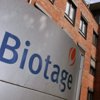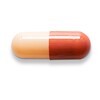Fritextsökning
Artiklar per år
Innehållstyper
-

The Swedish National Board of Health and Welfare rejects prioritising andrology as a speciality
Male infertility can be linked to a shorter lifespan and several severe diseases, but when couples who want children are examined, the focus is on the woman. Experts in the field claim that andrology needs to become a speciality in Sweden to increase awareness and knowledge. But the Swedish National Board of Health and Welfare says that it is not a priority.
-

“An entire industry is about to be wiped out”
According to Jennie Ekbeck, CEO of Umeå Biotech Incubators, Sweden risks not having any small diagnostic companies left in five years.
-

How critical are the “Spermageddon” reports? – Researchers call for action
A much talked about meta-study indicates that sperm concentration in men’s seminal fluid has halved in 40 years. Experts in andrology that Life Science Sweden speaks to believe that the results must be taken seriously, and call for action from the Swedish authorities.
-

Column: ”Life as a F1 race”
"The F1 car makes several pit stops during a race and during a lifetime the human being may also have to come in several times for maintenance", Björn Ursing writes in a column.
-

Rapid development in blood analysis – “Sweden is leading the race”
Thousands of analytical tests using just one single drop of blood. What was revealed as a hoax just a few years ago is now a reality, according to KTH professor and serial entrepreneur Mathias Uhlén.
-

Uppsalabolag köper brittiskt företag i miljardaffär – och får nya storägare
Bioteknikbolaget Biotage har tecknat avtal om att förvärva brittiska Astrea Bioseperations i en affär värd över två miljarder kronor. Betalning sker i aktier till säljaren, amerikanska Gamma Biosciences, som därmed blir största ägare i Biotage.
-

Individual DNA passport could result in fewer drug side effects
You may be required to show a DNA passport when you pick up medicines at the pharmacy in the future. According to a new study, patients might suffer 30% fewer side effects if the drug treatment is adapted to their genes.
-

Claims of life science companies fleeing abroad is a myth according to survey
The claim that life science companies are moving abroad is exaggerated. In fact, only a tiny percentage is leaving the country, according to a survey.
-

Column: ”We need to exploit the benefits of the regulations“
You don’t need to search long on the Internet to find lists of the most innovative countries with Sweden ranking at the top. Sweden generally offers good conditions for growing new solutions, but it is also becoming increasingly clear that we are challenged in one area – regulations, writes Björn Arvidsson in a column.
-

Uppsalaföretag beviljas särläkemedelsstatus i USA
Uppsalaföretaget Beactica Therapeutics har nu beviljats särläkemedelsstatus i USA för sitt läkemedel BEA-17 för behandling av glioblastom.
-

Kartläggning: Myt att life science-bolagen flyr utomlands
Påståendet om att life science-bolagen försvinner utomlands är överdrivet. I själva verket är det en ytterst liten andel som lämnar landet, enligt en kartläggning. "Det betyder inte att allt är guld och gröna skogar. Men vi behöver göra analysen rätt för att kunna vidta rätt åtgärder, säger Ylva Williams", vd för Stockholm Science City, som tagit fram uppgifterna.
-

The government proposes fines for pharmaceutical companies that fail to notify drug shortages in time
According to a compilation from the Swedish Medicines Agency, the number of residually notified medicines increased by 54 % in Sweden last year compared to the previous year. In a bill presented by the government a number of proposals are put forward to counteract the problem.
-

Nytt jobb för Anders Blanck
Lifs vd Anders Blanck går till Gullers grupp.
-

"Unclear proposal from the EU Commission on how to solve the MDR challenges"
Even before the EU regulation on medical devices (MDR) came into force, medical technology companies and doctors were concerned that it would endanger the availability of medical devices in the EU. Unfortunately, the fears have come true.
-

Han blir Lif:s nya vd
Det blir Johan Färnstrand, idag chef vid Aleris, som tar över vd-posten för branschorganisationen Lif efter avgående Anders Blanck.
-

ALS – When the body has given up, but the brain persists
The nerve disease ALS gradually deprives the patient of control over the muscles and, eventually, also of speech. The eyes continue to function, though, and with the help of, among other things, a Swedish-developed invention, communication with the outside world can continue. “It’s their window to the world,” says ALS researcher Caroline Ingre.
-

She creates pharmaceuticals on a 3D printer
The correct dosage for each individual, regardless of whether the pharmaceutical is for a seriously ill child or a frail elderly person, is the mission of a well-advanced project with 3D-printed drugs at Uppsala University. “It will soon be available in clinics”, says Christel Bergström, who is heading the project.
-

Karolinska rekryterar tidigare regiondirektör
-

Rhovac gör omvänt förvärv av danskt bolag
Istället för likvidation – nu ingår Rhovac avtal om ett omvänt förvärv av precisionsonkologi-bolaget Chosa. På onsdag väntas beslut om förvärvet att klubbas på en extra bolagsstämma.
-

Ökade vinster för privata vårdbolag – men allvarlig rekryteringskris hotar
Rejält ökad omsättning och den bästa lönsamheten på fem år. Det går bra ekonomiskt nu för den privata vården och omsorgen – men runt hörnet lurar utmaningar i form av bland annat personalbrist.
-

Fritt fram för desinformation om covid-19 på Twitter
Yttrandefrihet ska råda på Twitter, enligt nya ägaren Elon Musk, och nu har regler för att förhindra spridning av desinformation om covid-19 tagits bort.
-

Viss effekt av Alzheimers-behandling bekräftas i studie – Bioarctic stiger på börsen
Nya data bekräftar att Bioarctics läkemedel lecanemab bromsar Alzheimers sjukdom – om än i måttlig utsträckning och med vissa biverkningar. Beskedet fick bolagets aktie att stiga under onsdagsförmiddagens handel.
-

The stomach medication that became the biggest blockbuster of the 1990s
The omeprazole molecule was synthesised as early as 1979, but it took many years before the then Astra had an approved pharmaceutical. Once this happened, a tablet was available that was soon to help millions of people worldwide and break all sales records.
-

The most important Swedish medical innovations: Our ranking
Life Science Sweden turns 20 years old – and celebrates by producing a top list of the 20 most important contemporary Swedish innovations in the field of medicine.